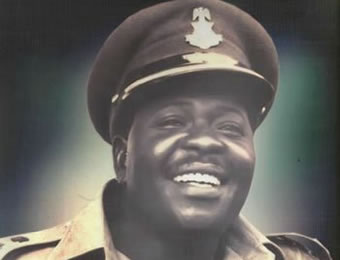I spoke with a secondary school leaver a few days back, asking him who Lt Colonel Francis Adekunle Fajuyi was, but I was shocked he had no idea who this great Nigerian was.
The same thing happened when I asked him about General Aguiyi Ironsi, and it quickly dawned on me that those who stopped the teaching of History in our secondary schools, and even threatened it at the tertiary level, have succeeded in wiping-off the ‘memory card’ of our past.
Living heroes are powerful, while those who are dead are more powerful because, despite the fact that they are no longer on this planet, they are still respected for their contributions to the development of humanity, and, therefore, they are only believed to have transited into another realm.
In the case of the late Lt. Colonel Fajuyi, here was a gallant, brave and outstanding soldier, whose life teaches dedication and commitment.
It is unfortunate that in Nigeria, our memory is so scanty and skewed, while our public spaces are filled with images of patent criminals; our musicians pollute the wind with praise songs for scoundrels with obscenely deep pockets
Were Nigeria a country with a solvent memory bank and a faculty of active remembrance, the late Fajuyi would, by now, have his statues in prominent public spaces all over the country, and the story of his gallantry told and retold from generation to generation.
For when those mutineers assailed the Government House in Ibadan on the night of July 29, 1966, and demanded the head of his guest, General Aguiyi-Ironsi, Nigeria’s head of state, Fajuyi, being a dedicated officer, refused to betray his Commander-in-Chief. He stood his ground. He barred the exit of honour from his household with his own body, with his own life.
It is worth noting that even in those urgent and mortal moments, Fajuyi had a choice. He could have cut and run. He could have reached for the typical Nigerian option by trading the security of his guest for his own safety and possibly a plum position in the new government that was sure to emerge from the coup.
Had he struck this deal and surrendered his guest, he would have triggered a development with far-reaching personal, ethnic, and national repercussions.
Perhaps, that decision would also have changed the course of Nigerian history and its ethno-regional complexion as we know them today. But Fajuyi stood his ground; he chose the path of honour, and as a result, we were taught a lesson in dedication.
- Bamidele Williams,
Lagos.






